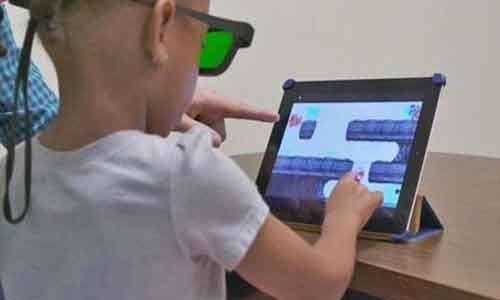- Home
- Medical news & Guidelines
- Anesthesiology
- Cardiology and CTVS
- Critical Care
- Dentistry
- Dermatology
- Diabetes and Endocrinology
- ENT
- Gastroenterology
- Medicine
- Nephrology
- Neurology
- Obstretics-Gynaecology
- Oncology
- Ophthalmology
- Orthopaedics
- Pediatrics-Neonatology
- Psychiatry
- Pulmonology
- Radiology
- Surgery
- Urology
- Laboratory Medicine
- Diet
- Nursing
- Paramedical
- Physiotherapy
- Health news
- Fact Check
- Bone Health Fact Check
- Brain Health Fact Check
- Cancer Related Fact Check
- Child Care Fact Check
- Dental and oral health fact check
- Diabetes and metabolic health fact check
- Diet and Nutrition Fact Check
- Eye and ENT Care Fact Check
- Fitness fact check
- Gut health fact check
- Heart health fact check
- Kidney health fact check
- Medical education fact check
- Men's health fact check
- Respiratory fact check
- Skin and hair care fact check
- Vaccine and Immunization fact check
- Women's health fact check
- AYUSH
- State News
- Andaman and Nicobar Islands
- Andhra Pradesh
- Arunachal Pradesh
- Assam
- Bihar
- Chandigarh
- Chattisgarh
- Dadra and Nagar Haveli
- Daman and Diu
- Delhi
- Goa
- Gujarat
- Haryana
- Himachal Pradesh
- Jammu & Kashmir
- Jharkhand
- Karnataka
- Kerala
- Ladakh
- Lakshadweep
- Madhya Pradesh
- Maharashtra
- Manipur
- Meghalaya
- Mizoram
- Nagaland
- Odisha
- Puducherry
- Punjab
- Rajasthan
- Sikkim
- Tamil Nadu
- Telangana
- Tripura
- Uttar Pradesh
- Uttrakhand
- West Bengal
- Medical Education
- Industry
Binocular treatment no better than patching for amblyopia

USA: Binocular treatments of amblyopia cannot be recommended as a replacement for standard treatments (including patching and optical treatment), a recent study in the AAO journal Ophthalmology has suggested.
According to the review, there is a lack of consistent evidence of the efficacy of binocular treatment compared with the standard therapies for amblyopia. Furthermore, 2 large randomized controlled trials have shown the binocular treatment to be inferior to patching.
Amblyopia, also called lazy eye, is a vision development disorder that occurs in early childhood. In this disorder, the eye fails to achieve normal visual acuity. It is the common cause of monocular vision loss and occurs in 2% to 4% of children due to the poor stimulation of the nerve pathways between the brain and an eye. When undertreated or untreated unilateral amblyopia can lead to reduced reading speed, abnormal fine-motor skills, and reduced stereoacuity.
"Binocular treatment of amblyopia involves the use of both the eyes, but the amblyopic eye is the primary eye performing a given visual task. Dichoptic therapies are a specific type of binocular treatment that uses dichoptic contrast balance, whereby contrast level of the dominant eye is reduced to negate suppression to a level where the contrast sensitivity of the 2 eyes is equal and balanced in the pursuit of the given visual task," wrote the authors.
The purpose of this assessment by the Ophthalmic Technology Assessment Committee Pediatric Ophthalmology/Strabismus Panel including Stacy L. Pineles, Jules Stein Eye Institute, Los Angeles, California, and colleagues, reviewed the published literature assessing the efficacy of binocular therapy for the treatment of amblyopia compared with standard treatments.
The researchers searched the online databases; the search yielded 286 citations, and the full text of 50 articles was reviewed. 22 articles met the inclusion criteria for this assessment andf were assigned an evidence rating by the panel methodologist. Six studies were rated level I, 1 study was rated level II, and 13 studies were rated level III because of the impact on the development and popularization of this technology.
Key findings of the study include:
- Two of the level I and II studies reviewed described a significant improvement in visual acuity in the binocular group versus standard patching standard treatment (the total number of patients in these 2 studies was 147).
- The 5 studies that failed to show a visual improvement from binocular therapy compared with standard treatments were larger and more rigorously designed (the total number of patients in these 5 studies was 813).
- Level I and II studies also failed to show a significant improvement over baseline in sensory status, including depth of suppression and stereopsis of those treated with binocular therapy.
- Several smaller level III case series (total number of patients in these 13 studies was 163) revealed more promising results than the binocular treatments studied in the level I and II studies, especially using treatments that are more engaging and are associated with better compliance.
"On the basis of this review, binocular therapy cannot be recommended as a replacement for the standard amblyopia therapy. However, there is a need for more research and more rigorous study of newer, more engaging therapies to determine the potential benefits of proposed binocular treatments in the future" concluded the authors.
The study, "Binocular Treatment of Amblyopia: A Report by the American Academy of Ophthalmology," is published in the AAO journal Ophthalmology.
Dr Kamal Kant Kohli-MBBS, DTCD- a chest specialist with more than 30 years of practice and a flair for writing clinical articles, Dr Kamal Kant Kohli joined Medical Dialogues as a Chief Editor of Medical News. Besides writing articles, as an editor, he proofreads and verifies all the medical content published on Medical Dialogues including those coming from journals, studies,medical conferences,guidelines etc. Email: drkohli@medicaldialogues.in. Contact no. 011-43720751


